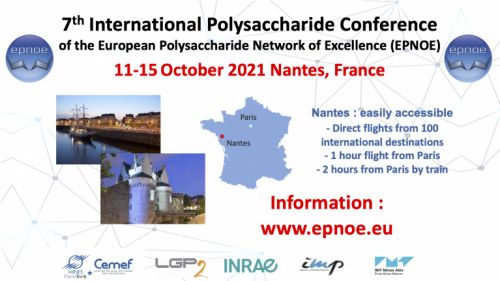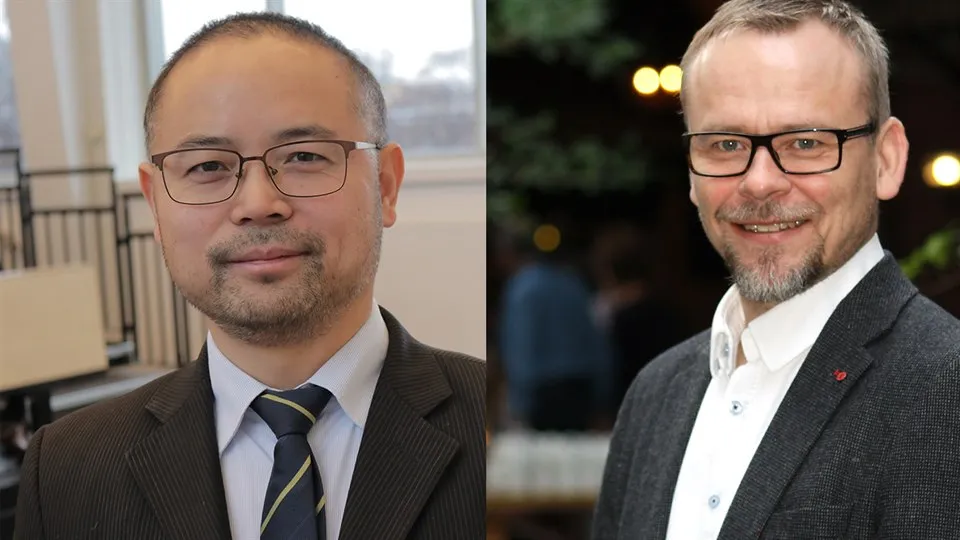Magnus Norgren and Renyun Zhang will be chairman's of a session in an international conference
Professor Magnus Norgren and Associate Professor Renyun Zhang will be chairman's of a session in the 7th International Polysaccharide Conference of the European Polysaccharide Network of Excellence together with researchers from Sungkyunkwan University in Seoul, South Korea.
The conference will take place in October 2021 in Nantes, France, and is organized by a number of French research institutes together with the Division of Cellulose and Renewable Materials at the American Chemical Society and the Cellulose Society of Japan. The program consists of several parallel sessions and is designed so that researchers from academia and business can present and discuss their latest results.
It feels very honoring that we from Mid Sweden University together with our research colleagues from South Korea have been selected to lead the session which is about cellulose materials for new applications in energy and electronics. This conference usually brings together around 400 researchers and industry who are active in the field, says Magnus Norgren.
Researchers in Materials Physics and Electronics Design at Mid Sweden University have for several years worked with sustainable ways of harvesting and storing energy, and by combining their knowledge with research in cellulose materials, completely new applications have now been found that have attracted international attention.
"We have published an article about a 'world record' for cellulose as a generator of static electricity, where the energy effect per square meter is at least twice as high as for a conventional solar cell," says Magnus Norgren, Professor of Chemical Engineering at the FSCN Research Centre, Mid Sweden University.
A cellulose-based triboelectric generator uses contact friction to create electricity and it can be an environmentally smart way to drive sensors using vibrations that can then communicate with computers without having to connect to either batteries or the fixed power grid.
"They could also be used to charge your mobile phone using the shock absorbers from your steps when you are walking, or if they are installed in the floor, they can light up a dark corridor that you walk through," says Renyun Zhang, associate professor of materials physics at FSCN research centre.
There are also completely different applications that occur in the research field of the static electricity that cellulose can generate. An example is to use triboelectric cellulose as an efficient particle trap in filters.
"We have recently received funding for a research project approved by Vinnova that deals with new types of respiratory protection for covid-19 control. In that project, we are working to develop cellulose-based triboelectric filters that will be easier and more comfortable to breathe through than today's respiratory protection because the filter meshes can be made greater when the static electricity holds the virus particles ", concludes Christina Dahlström, senior lecturer in chemical engineering at FSCN research centre.

Read more about the conference
For more information
Contact Magnus Norgren, Professor of Chemical Engineering, FSCN Research Centre Mid Sweden University, 073-074 60 90, magnus.norgren@miun.se
